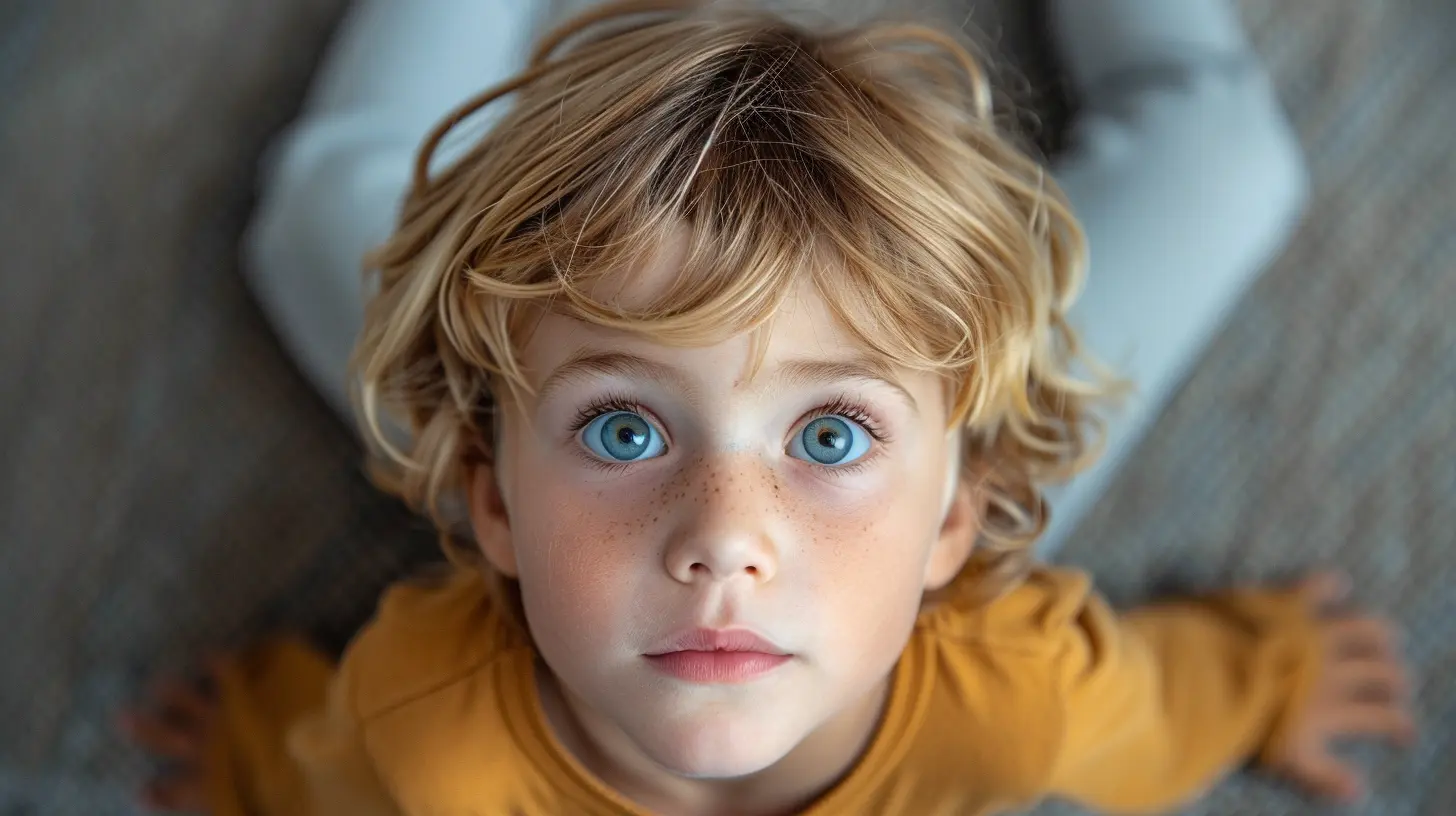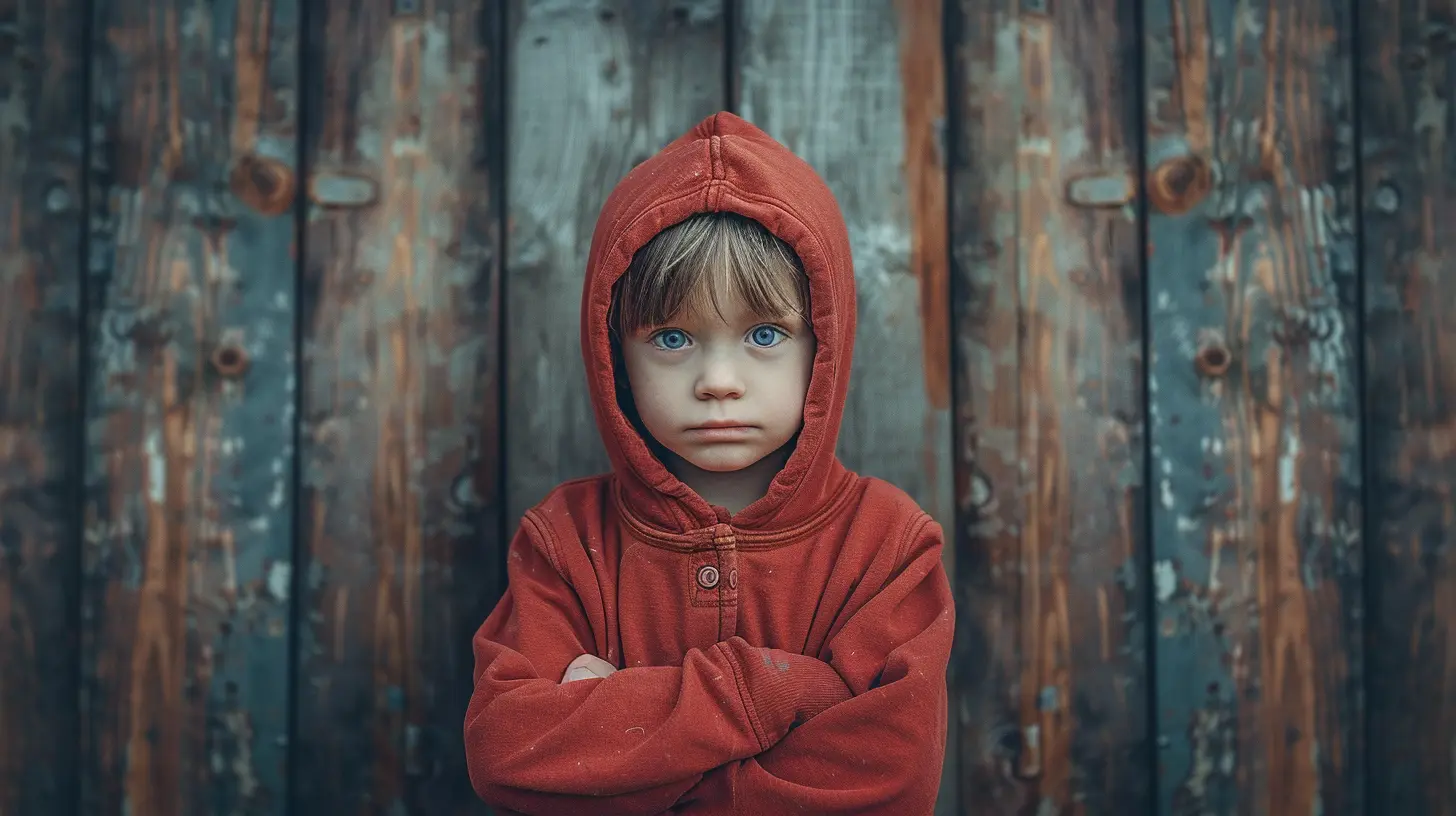Why Overprotecting Kids Can Hurt Their Confidence
5 July 2025
Parenting is one of the most challenging and rewarding jobs in the world. Every parent wants to keep their child safe, happy, and successful. But what happens when protection turns into overprotection? While shielding kids from harm may seem like an act of love, it can actually backfire, leading to low self-confidence, anxiety, and a lack of independence.
In this article, we’ll dive deep into the effects of overprotecting children, why it happens, and how it impacts their confidence in the long run. 
What Does Overprotection Look Like?
Overprotection isn't just about keeping kids away from dangerous situations. It often comes in subtle forms, like:- Not Allowing Age-Appropriate Risks – Stopping kids from climbing trees, riding bikes, or exploring new places.
- Making Decisions for Them – Choosing their clothes, friendships, or hobbies instead of letting them decide.
- Solving Their Problems – Intervening in every school dispute or completing their homework for them.
- Constantly Monitoring Their Actions – Always knowing their whereabouts, not allowing any independence.
While these actions may stem from love and concern, they send the underlying message: “You can’t handle this on your own.” Over time, this can erode a child’s self-confidence and ability to navigate the real world. 
The Downside of Overprotecting Kids
1. They Struggle with Decision-Making
Kids who are constantly shielded don’t get the chance to make mistakes and learn from them. Decision-making is a skill that needs practice. If a child never decides for themselves—whether it’s choosing between sports or handling a minor disagreement with a friend—they may grow up doubting their own judgment.Think about it: If every time you tried something new, someone stepped in and told you how to do it “the right way,” would you ever feel confident in your choices? Probably not.
2. They Develop a Fear of Failure
Failure is a part of life. Everyone stumbles before they succeed. But when parents jump in to prevent their kids from failing—whether it’s redoing their school project, making excuses for their poor performance, or shielding them from losing—kids don’t learn how to handle setbacks.Instead of seeing failure as an opportunity to grow, they start fearing it. This fear can hold them back from trying new things, taking risks, or stepping out of their comfort zone.
3. They Lack Independence
Imagine being given a roadmap but never being allowed to actually drive the car. That’s what happens to overprotected kids. They are given rules, advice, and guidance but never the opportunity to navigate life on their own.When they finally face situations without their parents’ help—whether it’s going to college, working a job, or managing relationships—they feel lost. They haven’t developed problem-solving skills because someone else has always done it for them.
4. They Have Higher Levels of Anxiety
Ironically, protecting kids too much can actually make them more anxious. When parents constantly warn their children about dangers—whether real or perceived—kids start seeing the world as a scary place.Instead of developing confidence in handling challenges, they develop a mindset of fear:
- What if I mess up?
- What if I can’t do it?
- What if something bad happens?
This kind of thinking can follow them into adulthood, leading to increased anxiety and a lack of confidence in their abilities. 
Why Do Parents Overprotect?
Most parents don't set out to overprotect their children. It often happens because of:- Fear of the Unknown – The world is unpredictable, and parents naturally want to shield their children from harm.
- Wanting to Prevent Pain – No parent wants to see their child struggle or get hurt. It’s instinctive to step in and fix things.
- Societal Pressure – With social media constantly highlighting dangers, parents feel pressured to monitor and control every aspect of their child’s life.
- Personal Experiences – Some parents overcompensate based on their own childhood experiences, wanting to avoid the mistakes their parents made.
While these concerns are understandable, it’s crucial to balance protection with the freedom kids need to develop confidence. 
How to Stop Overprotecting and Build Confidence
If you recognize signs of overprotection in your parenting style, don’t worry—it’s never too late to change. Here are some steps to help your child develop confidence:1. Let Them Make Age-Appropriate Decisions
Allow your child to make choices, even if they’re small ones. Let them decide what to wear, what book to read, or how to spend their allowance. Small decisions build the foundation for bigger ones later in life.2. Encourage Them to Take Risks
Not all risks are bad. Allow kids to climb, explore, and try new activities. If they fall, they’ll learn to get back up. If they fail, they’ll learn resilience.3. Teach Problem-Solving Skills
Instead of solving problems for them, guide them through solutions. If they have a conflict with a friend, ask, “How do you think you should handle this?” rather than stepping in.4. Stop Rescuing Them from Everything
It's okay to let kids struggle a little. If they forget their homework, let them deal with the consequences. If they lose a game, let them process their feelings. These experiences teach valuable life lessons.5. Model Confidence
Kids learn best by example. If they see you taking risks, handling failures with grace, and making decisions with confidence, they’ll be more likely to do the same.6. Give Them More Independence Each Year
As they grow, give them more responsibilities. Let them pack their own bags for school trips, manage their schedules, and complete tasks without supervision.7. Praise Effort, Not Just Success
Instead of saying, “You’re so smart,” try, “I love how you kept trying even when it was hard.” This teaches kids that effort and perseverance matter more than just winning or being perfect.Final Thoughts
Protecting our kids is natural, but overprotection can do more harm than good. When children aren’t given the freedom to explore, fail, and solve their own problems, they struggle with confidence, decision-making, and independence.As parents, our job isn’t to clear every obstacle from their path. It’s to walk beside them, offering guidance while encouraging them to navigate life’s challenges on their own. After all, the goal isn’t just to keep them safe—it’s to raise resilient, confident, and capable individuals who believe in themselves.
So, the next time you’re tempted to step in and solve everything for your child, take a step back. Give them room to grow, take risks, and build confidence. In the end, they’ll thank you for it.
all images in this post were generated using AI tools
Category:
Building ConfidenceAuthor:

Zelda Gill
Discussion
rate this article
2 comments
Gideon McDaniel
Overprotection stifles resilience; allowing kids to navigate risks builds essential confidence.
November 23, 2025 at 4:15 AM

Zelda Gill
Absolutely! Allowing children to face challenges fosters resilience and confidence, essential for their growth.
Heath Harmon
Shielding them too much stunts their confidence growth—let them explore!
July 12, 2025 at 3:10 PM

Zelda Gill
I completely agree! Allowing kids to explore and face challenges fosters resilience and boosts their confidence.


